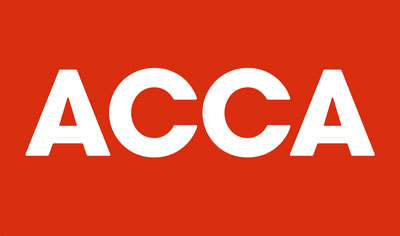ACCA: Be aware of financial activity alarm bells, warns CCAB Anti Money Laundering Task Force

Accountants’ ‘professional scepticism’ is the first line of defence in tackling money laundering and terrorist financing, says guidance issued today by the Anti-Money Laundering Taskforce of CCAB, the collective forum of accountancy bodies ICAEW, ACCA, ICAS, CIPFA and Chartered Accountants Ireland.
The advice lists a number of red flags which accountants and finance professionals need to be aware of, from wire transfers following cash deposits to negative media coverage about the client or company.
Anthony Harbinson, chair of the CCAB Anti Money Laundering Task Force says: ‘Funding terrorist activity is not necessarily expensive, with small amounts of money often financing such crimes. And it is for this reason that accountants need to be hyper-vigilant and aware of the pitfalls which may not always be so obvious – hence the need to apply professional scepticism and judgement, and be aware of the warning signs.
‘The fact that we are not looking at large amounts of money changing hands makes terrorist financing that much more difficult for an accountant to spot, but not impossible. It’s often so called ‘low level or ‘low risk’ activities that fund crime and terrorism – DVD pirating, counterfeiting, cigarette smuggling or credit card fraud.’
The brief guides are timely given a recent report from Transparency International which revealed the lack of powers available to law enforcement agencies to stop corrupt money being laundered through the UK. This report was issued when news broke that the Government has delayed its review into the UK’s Anti Money Laundering regime.
CCAB’s financial activity alarm bells include the use of cash mules, pre-paid gift cards, pre-paid credit cards and diversion of funds
Accountants need to conduct due diligence with their clients, advises CCAB, and highlights the following red flags:
- Unusual business activity;
- Being unable to ascertain sources of funds;
- Transfers of money where there is no apparent business relationships;
- Sending or receiving funds by international transfers to/from locations of concern – keep an eye on the HM Treasury sanctions list for high risk jurisdictions;
- Wire transfers following cash deposits;
- Negative media coverage about the client/company
The guides can be accessed at via the ‘Related Links’ section, left of this article.
Anthony Harbinson concludes: ‘Accountants have a legal obligation to report any suspicions of terrorism, including terrorist financing, to the National Crime Agency (NCA). This system provides the NCA with valuable intelligence that can help them disrupt terrorist funding and terrorist activity. It’s clear that accountants cannot do this alone; we need to work with the legal profession, Government and other agencies to beat the money launderers.’
Source: ACCA



























